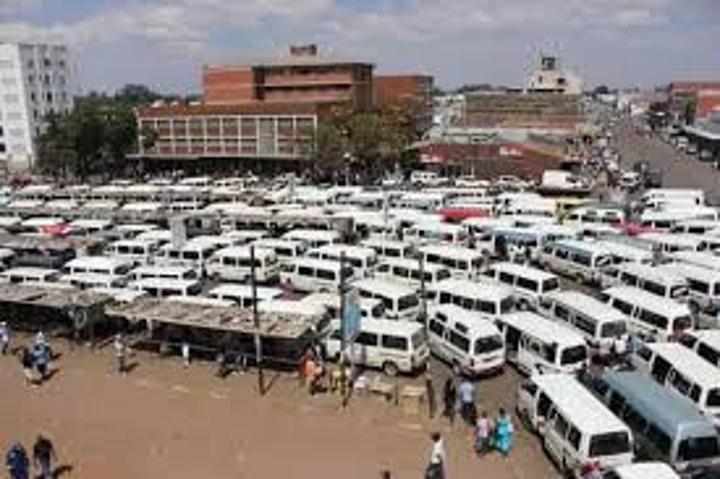Africa-Press – Zimbabwe. THE City of Harare has plans to ban commuter omnibuses and pirate taxis within three years in a move that is expected to transform the capital city’s transport system.
Government banned commuter omnibuses during the COVID-19 period, but allowed the vehicles back on the roads after relaxing pandemic regulations.
Commuter omnibuses and pirate taxis are blamed for an increase in fatal road accidents in Harare and most urban areas across Zimbabwe as they flout road regulations.
According to the recently adopted Harare master plan, commuter omnibuses will be banned from Harare’s roads within the next three years, while the ban on pirate taxis is with immediate effect.
About half of Harare residents use kombis, buses and pirate taxis as their mode of transport, while 16,9% walk, with 28,5% using their vehicles.
In the Harare master plan covering 2025-45, the city said it was going to ban kombis within three years.
“Policy 109: Ban commuter omnibuses in Harare within the next 3 years. And Policy 110: Ban pirate taxis mishikashika in Harare with immediate effect,” read the report.
“In 1991, the government of Zimbabwe proposed a policy agenda that led to the Economic Structural Adjustment Programme (Esap).
“The World Bank and International Monetary Fund provided support for Esap, whose aim was to change Zimbabwe’s controlled economy to a market-driven economy.
“It is against these broader Esap policy goals that the public transport sector in urban areas was in principle partially deregulated in August 1993, allowing privately-operated commuter omnibuses (also known as kombis) to compete with Zupco.”
Experts say a ban of kombis must be accompanied by the provision of alternative modes of transport for the commuting public.
Zimbabwe Union for Drivers and Conductors president Frederick Maguramhinga cautioned the council not to be aggressive with operators.
“If the master plan is done with aggression, just like what happened before, we will not be able to resolve these issues; it will create problems for our country in the future,” he said.
Maguramhinga said kombis were a mode of transport in several countries.
He said it was impossible to ban commuter omnibuses as the roads are in bad shape, adding that buses would not be adequate to transport people.
“The buses that they call mass transport systems will not get all people and one cannot wait for five hours for a bus to get into town and travel five to seven kilometres to get in town,” Maguramhinga said.
Passengers Association of Zimbabwe president Tafadzwa Goliath said council should concentrate on repairing public toilets and allow kombis to continue carrying people in Harare.
“The proposed ban on kombis and illegal pirate transport in Harare’s master plan draft raises concern about the practicality and feasibility of such a move,” he said.
“Given the city’s existing infrastructure challenges, including inadequate public toilets and bus termini, it’s crucial for the authorities to address these underlying issues before implementing such a ban.
“The Passengers Association of Zimbabwe believes that a more comprehensive approach is needed, one that balances the need for improved transportation with the reality of the city’s current infrastructure limitations.”
The master plan further indicated that all three-wheeled taxis operating on the city roads must be banned and has ordered all ride-hailing operators to submit GPS telemetry data and monthly ridership reports immediately.
“Three-wheeled taxis should not be allowed to operate or move on Harare roads as a means of public transport. All cab-hailing facilities and companies (or applications) submit GPS telemetry data on all trips and monthly ridership reports to the director of urban planning with immediate effect. Noncompliant companies should be banned from operating,” it said.
The master plan also proposes that the City of Harare engages the State through the Local Government and Public Works ministry and the Transport and Infrastructural Development ministry for the return of motor vehicle licensing to the city.
It further calls for the allocation of Zimbabwe National Road Administration (Zinara) funds proportional to the number of vehicles registered in the city for funding road improvements.
The report also indicates that there are six major bus termini in the central city area, and kombis and buses are dropping passengers outside these locations.
“Early plans had provided for adequate bus termini in most suburbs in Harare, but the termini infrastructure (bus shelters and ablution facilities) have not been maintained and some have been vandalised.
“Some of the ablution facilities in these areas are no longer working and those that are working are overwhelmed. Bus termini in the central business district are no longer able to cope with the volume of buses and commuter omnibuses.
“The operators are now parking their buses and kombis around the ranks, blocking traffic and causing congestion. There are no marked drop-off zones in the CBD bus termini. On some ranks, there are multiple entry and exit points and this makes it difficult to control traffic in the termini,” the report read.
It further indicates that the city has weak traffic demand policies to develop and promote non-motorised transport in Harare.
“The Harare City Council has weak traffic demand policies, therefore, showing that institutional support for non-motorised transport is generally weak, as policies and government spending do not promote the usage of non-motorised transport. There is a stigma around non-motorised transport, especially among Harare residents who associate it with poverty.
“If Harare City Council could make adequate provision in terms of infrastructure investments and policies, this mindset could change, and people will tend to keep using non-motorised transport even though their income levels allow for the usage of motorised transportation,” the master plan said.
For More News And Analysis About Zimbabwe Follow Africa-Press






